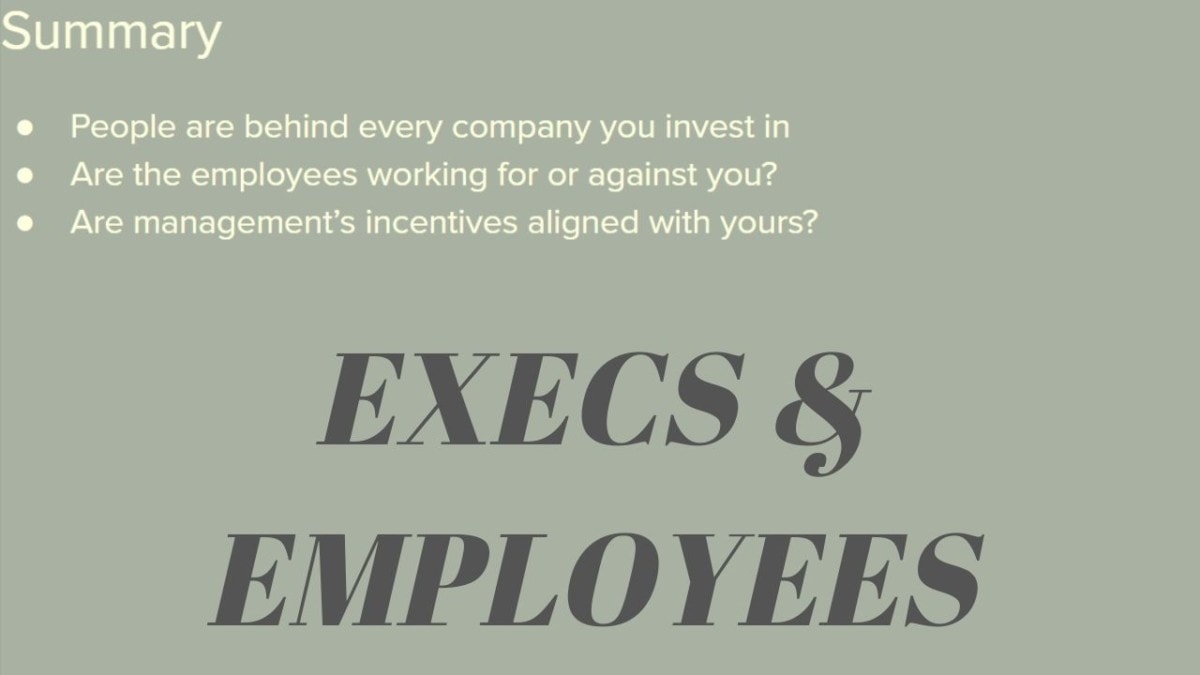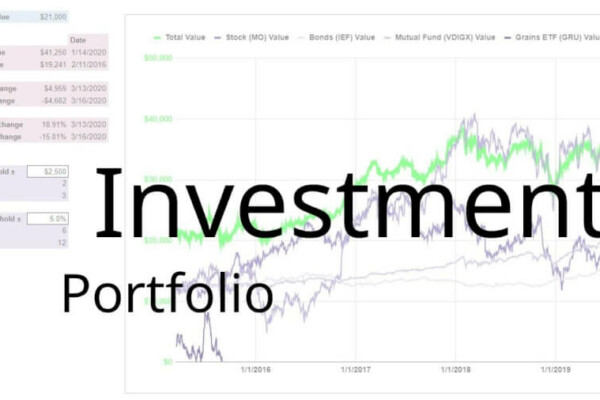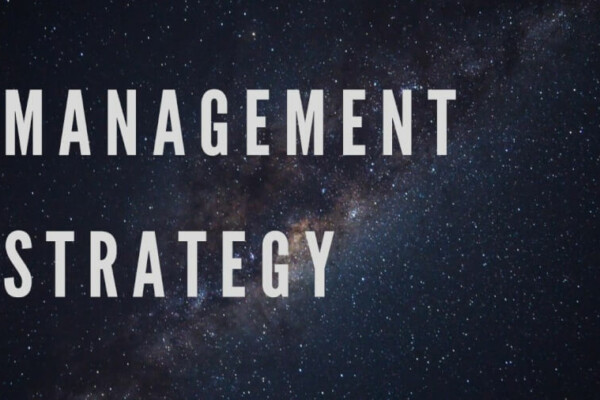Investment Analysis – The Impact of Management & Employees Video Summary
People are behind every company you invest in. Are the employees working for or against you – as an investor? Are management’s incentives aligned with yours?
Fisher’s (Common Stocks and Uncommon Profits) points 7, 8, and 9 are:
- “Does the company have outstanding labor and personnel relations?”
- “Does the company have outstanding executive relations?”
- “Does the company have depth to its management?”
The “rank and file”
Good labor relations are related to good profit margins. At least according to Philip Fisher. He thought that good profits plus above-average wages would equal (likely) good relations.
Check out the Profit Margin Analysis video/post.
Are the employees unionized? It’s not necessarily bad if they are. But, is the relationship with management contentious?
Employee reviews & pay
Reviews and pay info can be found on Glassdoor, Indeed, and similar sites. How does your stock compare to others in its industry?
Benchmark what you find against the “best places to work.” Also against competitors.
Labor relations and profit margin
Are they correlated? It’s hard to say for sure. The greater the profits, the greater the relations, the greater the wages?
You’ll have to come to your own conclusions. Compare reviews and pay info with what you uncover in the Gross Margin Analysis.
Unions?
Search the stock’s 10-K for “union” to see if they have one. If so, search “[company name] unions” to get a feel for the relationship. Don’t forget to search back in time too.
Upper management
Is the company ran by the founder? If not, is it ran by the family of the founder?
No matter who runs it – is compensation in line with the competition? Does it align their interests with yours? Can you find anything out about management depth? Who might follow the current management team?
Family-owned/operated?
Individuals and families who have skin in the game are more likely to act in your best interests. Why? Because they will participate in the stock’s upside AND downside with you. Management with no skin in the game is just another employee/agent. Having skin in the game can mean the difference between a short-term and long-term mindset for management.
On the other hand… is family promoted ahead of more able executives?
If the company isn’t family-owned and operated – who’s the largest shareholder? Do you have faith in them? What’s their track record with hiring executives?
Executive compensation
Consider:
- Salary & bonus
- Short-term incentives
- Cash compensation
- Bonus typically = fixed percentage of sales or profits
- Long-term incentives
- Restricted Stock Units (RSU)
- Become shares of stock as they vest (typically over the course of years)
- Can be sold once vested
- Stock Options
- The right to buy (call) company shares at a predetermined price
- Can be exercised once vested (over the course of years)
- Supplemental benefits
- Supplemental Executive Retirement Plan (SERP)
- Deferred compensation
- E.g. 70% of the executive’s high 3-year average compensation
- Often financed with cash value life insurance
- Deferred compensation
- Perquisites (perks)
- Use of aircraft
- Sporting events
- Club memberships
- Golden parachutes
- Disincentive to do a good job
- Could reduce conflict of interest during a merger
- Supplemental Executive Retirement Plan (SERP)
Depth to management?
Read up on management bios. Get to know them.
Also, read “Does Senior Management Have the Right Qualifications?”
The truth is, it’s difficult to know really know management without working there. Work with what you have. Snoop on LinkedIn. These people are in charge of your money. There’s no shame in creeping!













